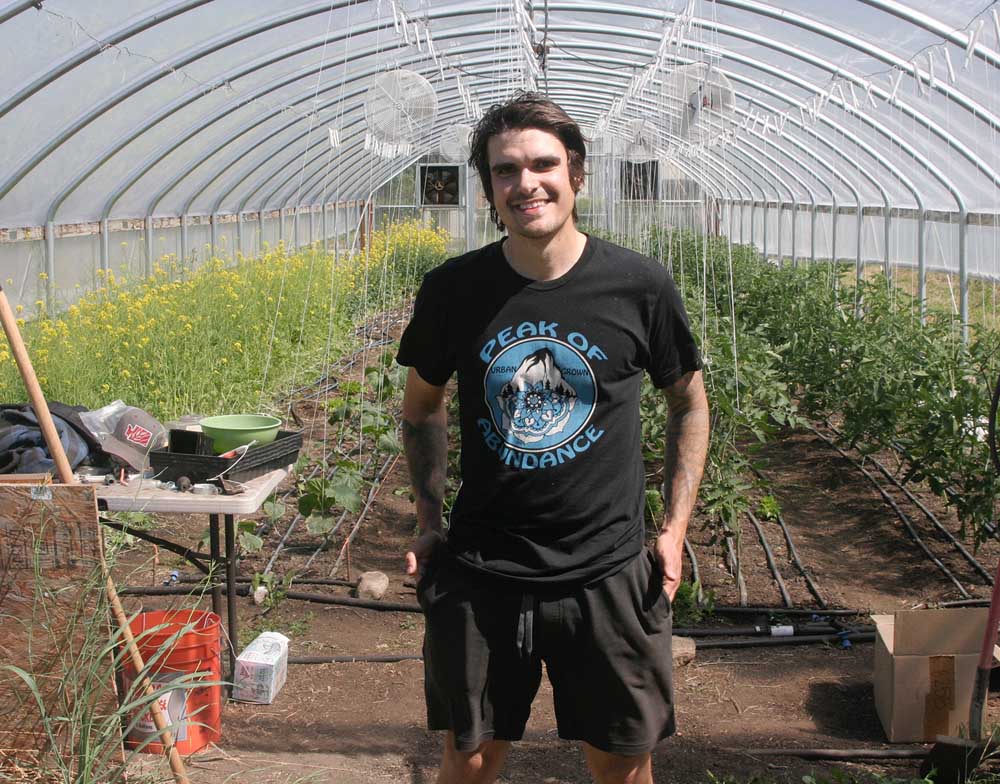Urban farmer uses high tunnel to extend growing season
Published 5:00 pm Tuesday, July 26, 2022

- Brandon Gerard raises tomatoes, cucumbers and leafy greens on roughly half an acre in Spokane Valley, Wash. He received NRCS funding through the EQIP High Tunnel Initiative to extend his growing season.
SPOKANE VALLEY, Wash. — Small-scale farmer Brandon Gerard has extended the growing season for his tomatoes, cucumbers and leafy greens by using a high tunnel.
Trending
Gerard, 31, farms on roughly half an acre in Spokane Valley, Wash., under the name Peak of Abundance Farm.
With the high tunnel, he’s gained a month on his warm season crops, and can plant his greens early. He also overwinters some crops.
He sells his produce through the LINC Foods co-op in Spokane.
Trending
He’s also adding another high tunnel and aims to have his crops under as much cover as possible.
“The weather’s so unpredictable,” he said. “It varies so much — just this little bit of extra control on either end and protecting from the elements makes the most sense in my context, being so small.”
While living outside Portland, Gerard volunteered on a farm. That and his experience working at restaurants made farming a natural fit, he said.
Gerard bought his lot in the fall of 2016. The land is part of a former farm but is currently zoned for multi-family housing. The former owner was using the field for parking.
Gerard has been gradually developing the farm. To pay for it, he has been working several jobs, including at an outdoors retail chain and “pouring beer.”
“I’m now transitioning toward full-time,” he said.
He estimates he’s spent upward of $20,000 establishing the farm. He’s “working toward” being profitable.
“It’s definitely something that is more realistic now than it has been,” he said with a laugh. “I definitely see myself being profitable, if not this year, then next.”
Farmers such as Gerard can receive a maximum of $15,000 through the Natural Resources Conservation Service Environmental Quality Incentive Program to build the high tunnel and run irrigation lines.
The EQIP High Tunnel Initiative makes high tunnels feasible for more farmers, said Tiffani Walker, NRCS soil conservationist.
“It does give them that option for the extended growing season, it does help with soil health,” she said.
It also lets farmers address soil issues, including wind and water erosion, she said.
NRCS generally expects a high tunnel to last four years, with good general upkeep, she said.
“Come and talk to us, I guess that’s the best advice I can give,” she said. “A lot of people think we only deal with big farmers, but … we don’t have any problem helping people with stuff, it doesn’t matter how big the acreage is. We can either find something or at least give you advice on where to go.”
Greenhouses are considered a permanent structure, requiring a permit, but high tunnels are not permanent and don’t require a permit, Walker said. Farmers must use a brand-new, manufactured kit.
Gerard said he is glad NRCS has such programs.
It’s about “getting a younger generation into farming and helping to expand access to food — trying to make that a viable option for people,” he said.
https://www.nrcs.usda.gov/wps/portal/nrcs/detail/wa/programs/financial/eqip/?cid=stelprdb1262761
https://www.instagram.com/peakofabundance/







